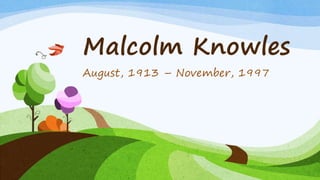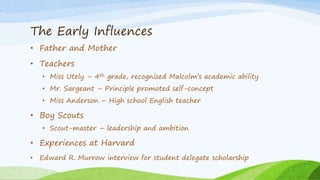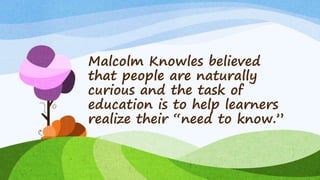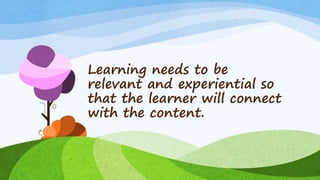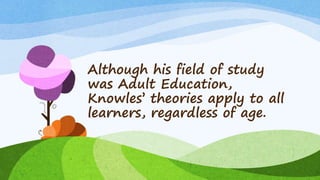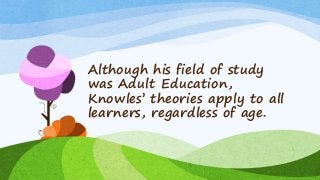Malcolm Knowles (1913-1997) emphasized the importance of relevant and experiential learning, advocating that education should tap into people's natural curiosity. He believed educators must remove barriers to learning motivation, such as negative self-concept and inaccessibility of opportunities. While focused on adult education, Knowles' theories are applicable to learners of all ages.
